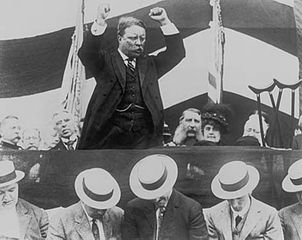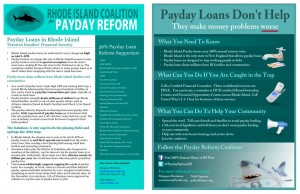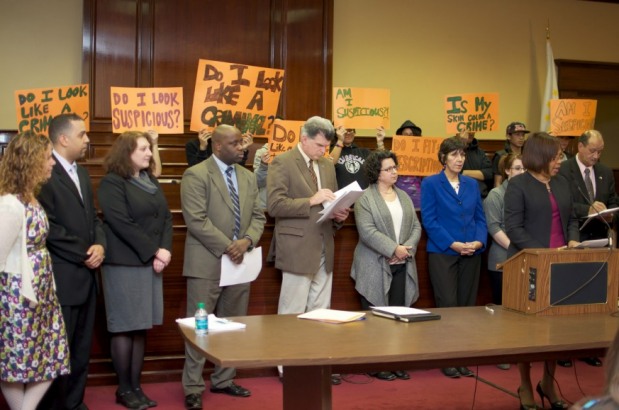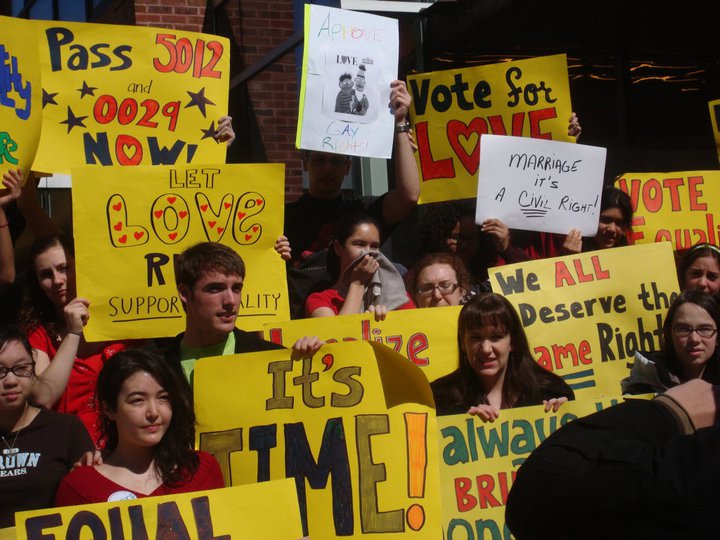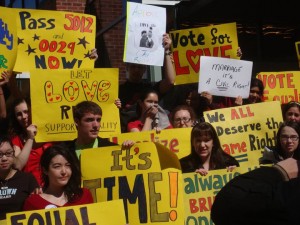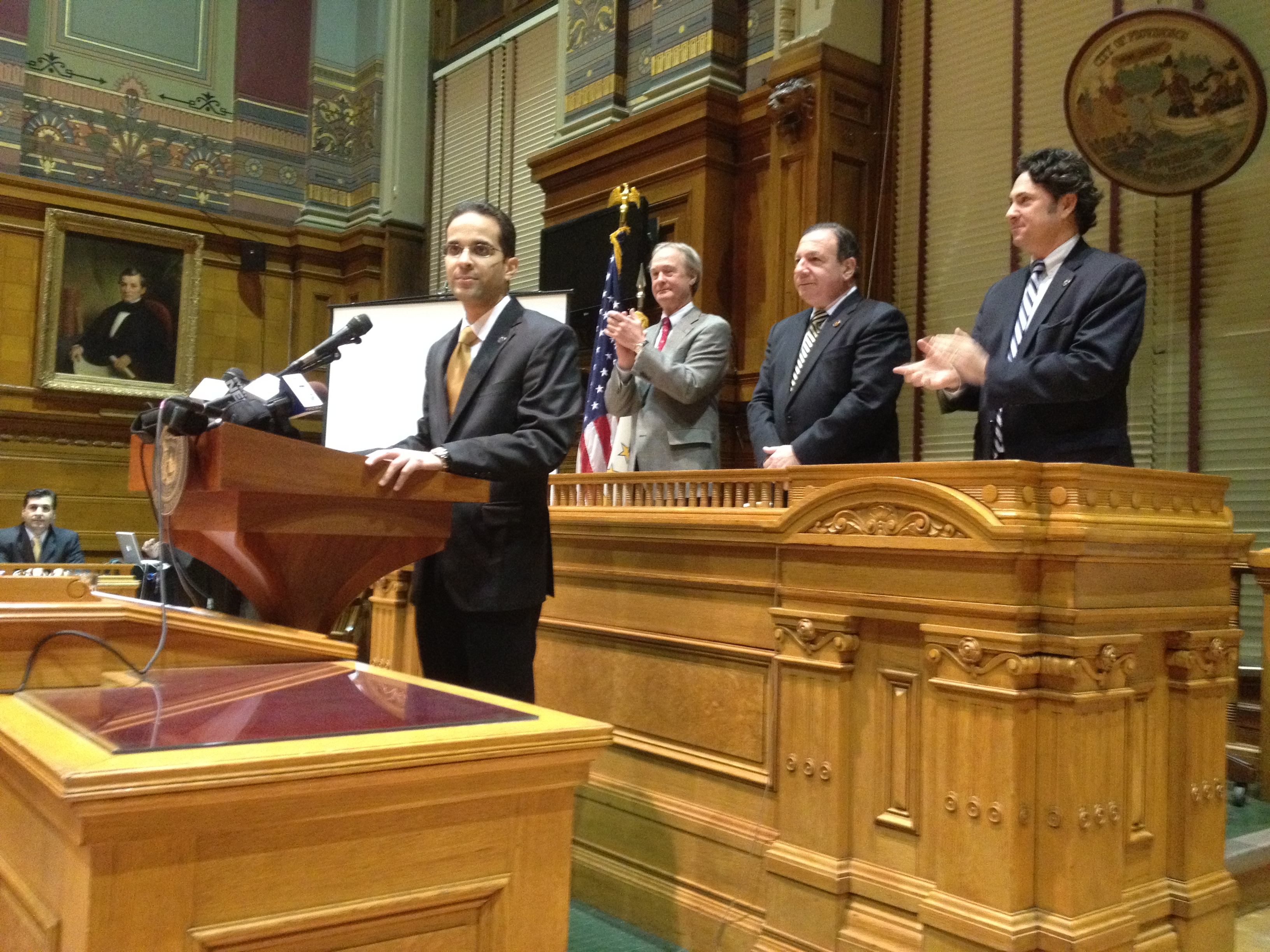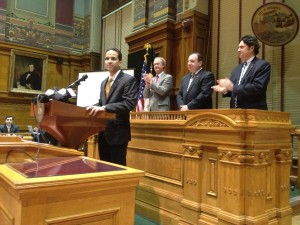PROVIDENCE, RI – On Wednesday, March 7 at 4:30 PM, community members and advocates are expected to show up en masse to share their views on racial profiling in RI at a hearing at the State House before the House Committee on Judiciary. But folks have been speaking out on the topic for years, including youth and adult advocates from Providence Youth Student Movement (PrYSM), an organization founded to support Southeast Asian Youth in Providence.
Hear more about their work here in this podcast of excerpts from my February 15 interview with PrYSM youth leaders, ?Sangress Xiong and Yonara Alvarado, and PrYSM staffer Franny Choi. It aired lived on my weekly program, Sonic Watermelons on Brown Student and Community Radio.
During the interview, Xiong, Alvarado and Choi talk about recent campaign actions, like the February press conference introducing House Bill 7256, the making of the local documentary called Fitting the Description, and other recent activities that they have participated in with PrYSM and the Coalition Against Racial Profiling. Alvarado (who is Latina) says she became passionate about the topic after being in the car and witnessing racial profiling when her uncle was stopped by an officer, and subsequently feeling less faith in whether officers are best serving the community; Xiong, who is Hmong (Southeast Asian), helps explain how a practice once known as “Driving while Black” has expanded to include not only the Latino/Hispanic community, but the Southeast Asian community in Providence as well – including friends and neighbors of his.
I also spoke with the three guests about the benefits and limitations of using digital media tools to collect stories from people who’ve been subjected to racial profiling, and for doing outreach about legislative efforts like the Comprehensive Racial Profiling Prevention Act that will be reviewed and discussed at next Wednesday’s House Judiciary hearing. The ten-page bill deals primarily with conduct during motor vehicle stops and searches, and among the provisions are:
- Requirements for officers to document (in writing) the “reasonable suspicion” or “probable cause” grounds for conducting a search of any motor vehicle,
- A determination that identification requested during traffic stops be limited to driver’s license, motor vehicle registration, and/or proof of insurance, and (unless there is probable cause of criminal activity) only asked of drivers
- A mandate to create standard policies and protocols for police vehicles using recording equipment, such as documenting every stop that is made and prohibiting the tampering or disengagement of equipment.
In addition to collecting the probable cause information, the bill would require officers to collect data on race during stops – and departments to maintain and report this data at intervals over a 4 year period. Choi says collecting data is key to ending racially divisive practices, and – along with the ACLU in their work on the topic – points to a local, southern RI city for proof of its inclusion in the bill as being “effective legislation.”
In Narragansett, says Choi in the excerpts, the department began collecting information without the legislation, and found a drop in “racial disparities in stops” after instituting the policy. The ACLU also found recent actions and improvements in Johnston. At the end of the day, says Choi, “when you’re pulling someone over, have a reason to pull them over.”
***
To connect with PrYSM about their work on Racial Profiling, visit www.prysm.us or email franny@prysm.us. For more information about the Coalition Against Racial Profiling or next Wednesday’s hearing, contact Nick Figueroa of the Univocal Legislative Minority Advisory Coalition (ULMAC) by email at policy@ulmac.org. Anyone can attend the hearing and sign up to testify, but Figueroa highly encourages anyone who would be testifying for the first time to contact him in advance for information and tips on the process of giving testimonies and what to expect in the hearing. For example, four other bills are scheduled to be discussed on the same night and in the same hearing (meeting), so 4:30 may be the start-time for the hearing, but not necessarily when the Racial Profiling Bill is addressed.
Additional clips from the interview will be made available on VenusSings.com and IsisStorm.com, where you can also follow show updates about Sonic Watermelons, which airs live every Wednesday, from 6-8 PM (EST) at www.bsrlive.com.





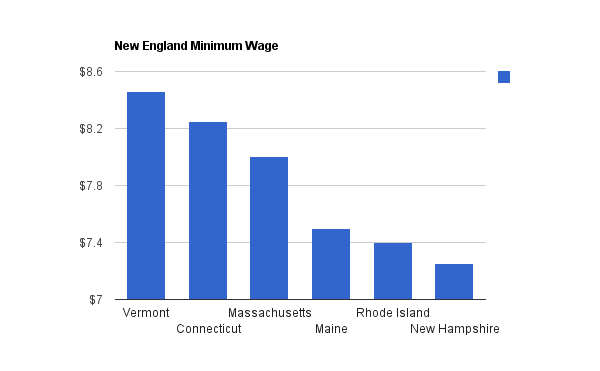
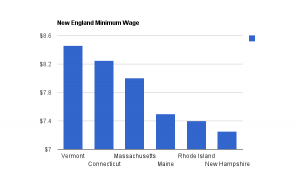










 Some people —
Some people —  During the run-up to closing, we hired a home inspector and a lead inspector. When it came time to move, we needed movers to carry most of the big stuff (and I won’t lie, they carried plenty of the small and medium stuff, too). We called
During the run-up to closing, we hired a home inspector and a lead inspector. When it came time to move, we needed movers to carry most of the big stuff (and I won’t lie, they carried plenty of the small and medium stuff, too). We called  Then in the late summer, we
Then in the late summer, we 


